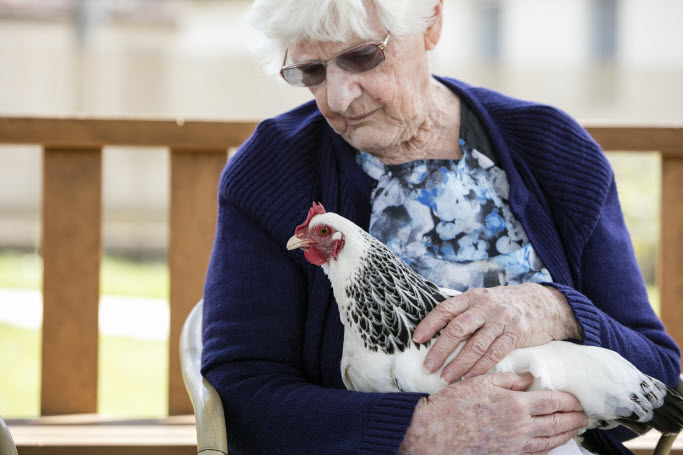Creative ageing expert Karn Nelson says neuroscience confirms that our brain’s capacity for creative expression does not diminish with age, in fact, it can actually grow.
These approaches have been used to aid rehabilitation following strokes or operations, to help people manage mental health issues such as anxiety and depression and also to build confidence in those with cognitive impairment such as dementia.
Below Karn shares a few exclusive tips on how to stay mentally sharp as we age.
- Be creative
It doesn’t matter if you aren’t ‘naturally’ creative. Anyone can express themselves through music, art, mandala meditation, puzzles, cooking or gardening. This builds confidence and can have a big impact on positivity, wellbeing and happiness.


- Connect with others
Loneliness is as damaging to health as smoking 15 cigarettes a day. Find ways to connect with the people, places, interests and things that matter yourself. Being socially isolated, which more than 40% of older Australians are, has a hugely negative impact on health and wellbeing. Find a new interest, maintain existing hobbies, go to social groups and events, care for a family pet or even just engage in meaningful conversation.

- Be physically active
You are never too old to stimulate your body, which will benefit your brain. Go for a brisk walk or swim and keep your body active, to look after your overall mental and physical wellbeing and fight off anxiety and depression. Why not call on your friends and family to exercise with you to make it even more rewarding?

- Be mentally active
‘Training your brain’ is necessary as we grow older. We all know that we need to keep testing and challenging our brains to keep them in shape. It is possible to engage the imaginations of elder people simply by using sensory stimulus such as music, pictures, things to hold and play with, which will encourage conversation and memories to flow. These techniques are currently used as a non-medication based social group therapy to slow cognitive decline.

- Find meaningful activities
Participating in meaningful activities helps us feel positive, purposeful, and accomplished. Encourage older family members to pursue an old hobby, or finding a new one or volunteering, mentoring others and other ways of giving back. To care for a living thing, whether that be a human, animal or plant, can have an enormous impact on a person’s self-worth, which is why pet therapy is so powerful. Helping someone else will inevitably help them.

The Carousel thanks The Whiddon Group for this article.









